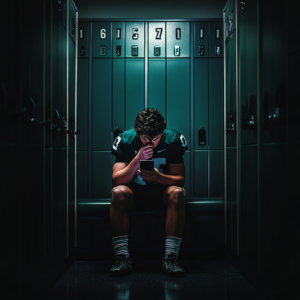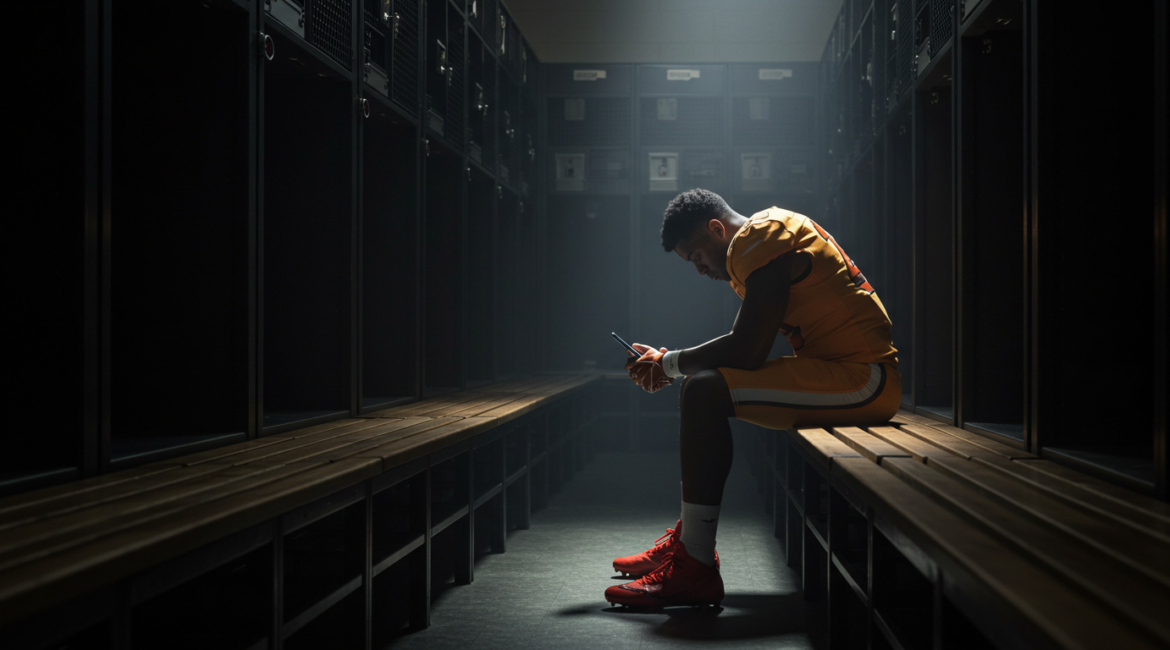In the highly competitive world of high school sports, the recruiting process can be as mentally challenging as any physical game. While some athletes receive scholarship offers early, others watch and wait, battling feelings of inadequacy and uncertainty. This emotional rollercoaster affects thousands of young athletes each year, making mental health awareness an essential component of athletic development.
The Hidden Struggle Behind the Highlights
For every social media post celebrating a scholarship offer, countless athletes are silently wondering, “When will my turn come?” This question weighs heavily on the minds of talented players who see teammates and competitors advancing while they continue to wait. The psychological impact can be profound – affecting performance, self-confidence, and overall wellbeing.
“The recruiting process is designed to be selective, but that doesn’t make it any less personal when you’re the one being overlooked,” explains sports psychologist Dr. Maya Rodriguez. “Athletes often tie their identity and worth to their athletic achievements, creating a dangerous situation when external validation doesn’t arrive as expected.”
Why Mental Health Matters During Recruitment
Mental health isn’t just a side conversation in athletics – it’s a fundamental component of performance and development. Here’s why it deserves priority attention during the recruiting process:
- Performance Connection: Anxiety and depression don’t just affect happiness – they directly impact athletic performance. Mental health challenges can manifest as decreased focus, impaired decision-making, and physical symptoms that hinder an athlete’s ability to showcase their talent.
- Long-term Development: The high school years represent a critical period for mental health foundations that will serve athletes throughout life, regardless of where their athletic career leads.
- Resilience Building: The recruiting process, with its inherent ups and downs, provides an opportunity to develop psychological resilience that transfers to all areas of life.
Strategies for Maintaining Mental Health During Recruitment
Focus on Personal Growth, Not Comparisons
The most dangerous trap in the recruiting process is comparison. Each athlete’s journey is unique, influenced by countless factors beyond their control – from the specific needs of college programs to the timing of exposure opportunities.
Create personal benchmarks based on your own previous performance rather than measuring success against teammates or competitors. Track improvements in specific skills, strength metrics, or game statistics to maintain perspective on your development.
Build Identity Beyond Athletics
While athletics may be a central part of your life, it shouldn’t define your entire sense of self. Cultivate other interests, relationships, and skills that provide fulfillment outside of sports.
“Athletes with diverse sources of self-esteem tend to weather the recruiting storm much better,” notes high school counselor T. Washington. “When your worth isn’t tied exclusively to athletic achievement, you create psychological safety nets that support mental health.”
Develop a Support System
No athlete should navigate the recruiting process alone. Assemble a support network that includes:
- Trusted Coaches: Who understand the process and can provide realistic feedback
- Mental Health Professionals: Sports psychologists or counselors familiar with athletic challenges
- Family Members: Who offer unconditional support regardless of athletic outcomes
- Peers Outside Sports: Who provide perspective and connection beyond athletics
Practice Mindfulness and Present-Focus
The recruiting process naturally pulls athletes’ focus toward an uncertain future. Mindfulness techniques help redirect attention to the present moment, reducing anxiety and enhancing performance.
Simple daily practices like guided meditation, deep breathing exercises, or pre-game visualization can significantly impact mental wellbeing during stressful periods.
When to Seek Professional Help
While feelings of disappointment and frustration are normal during recruitment, certain signs indicate a need for professional support:
- Persistent feelings of hopelessness or worthlessness
- Significant changes in sleep or appetite
- Withdrawal from friends and activities previously enjoyed
- Declining academic performance
- Thoughts of self-harm
Many schools now provide access to sports psychologists or have partnerships with mental health services. Taking advantage of these resources demonstrates strength, not weakness.
The Path Forward
The recruiting process will always involve uncertainty, but it doesn’t have to undermine mental health. By implementing proactive strategies and maintaining perspective, athletes can navigate this challenging period while continuing to develop both athletically and personally.
Remember that a delayed opportunity doesn’t equal a denied opportunity. Many of today’s most successful athletes faced recruiting challenges that ultimately strengthened their resolve and contributed to later success.
Mental health isn’t just something to address when problems arise – it’s a fundamental component of athletic development that deserves ongoing attention. By prioritizing psychological wellbeing alongside physical training, athletes position themselves for success both on and off the field, regardless of when scholarship offers arrive.
RepMax Media is committed to supporting the complete development of student-athletes through resources that address both physical performance and mental wellbeing. For more information about mental health resources for athletes, contact our support team.

Very good https://shorturl.at/2breu
Very good https://shorturl.at/2breu
Awesome https://lc.cx/xjXBQT
Awesome https://lc.cx/xjXBQT
Good https://is.gd/N1ikS2
Very good https://is.gd/N1ikS2
Very good https://is.gd/N1ikS2
Awesome https://is.gd/N1ikS2
Good https://is.gd/N1ikS2
Awesome https://is.gd/N1ikS2
Good https://is.gd/N1ikS2